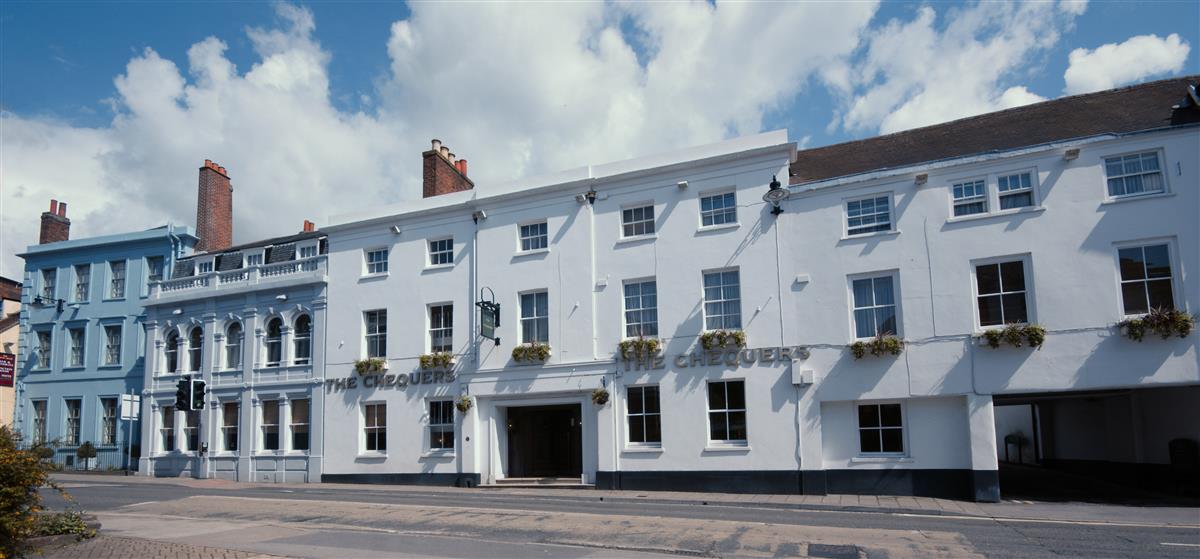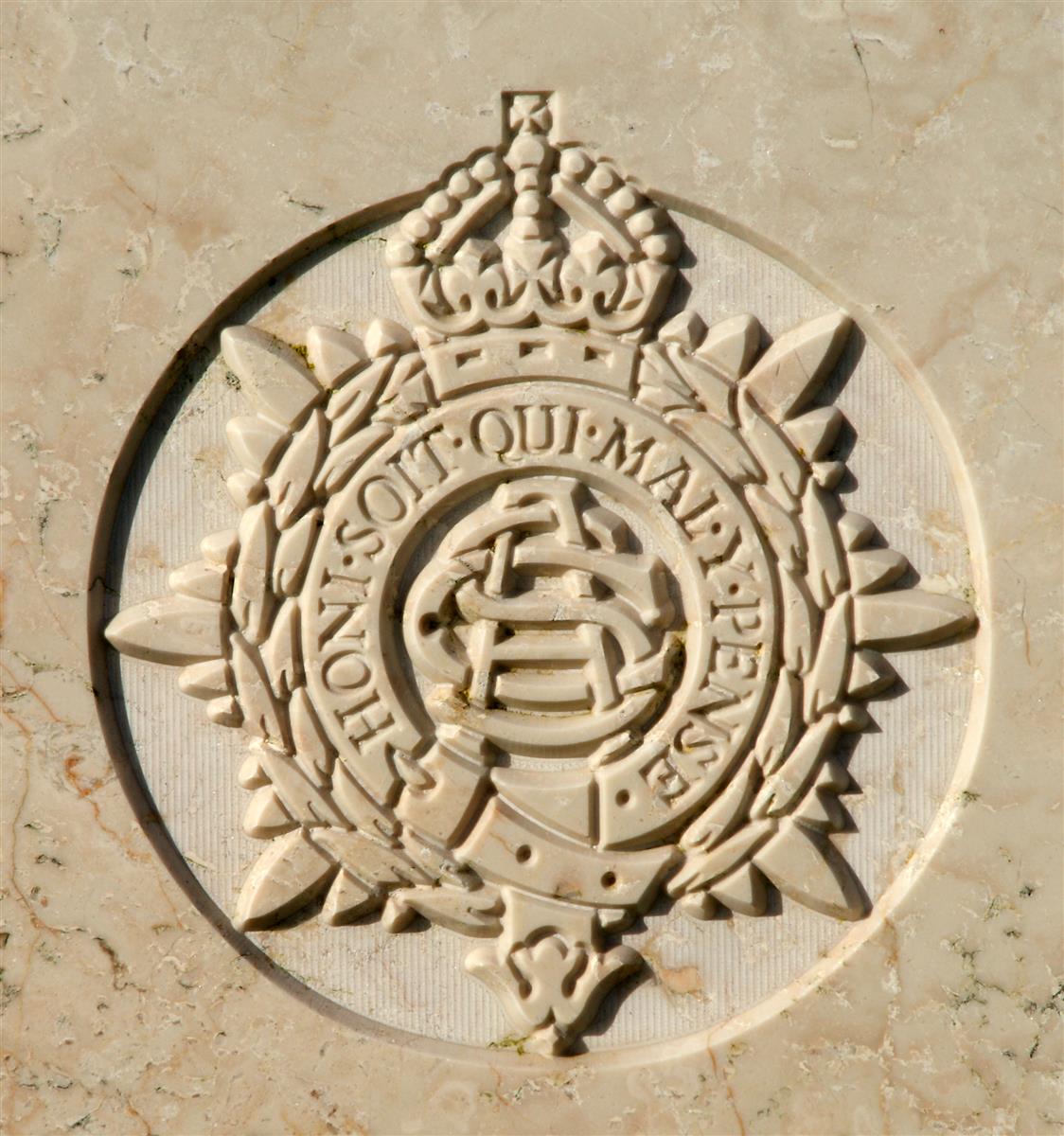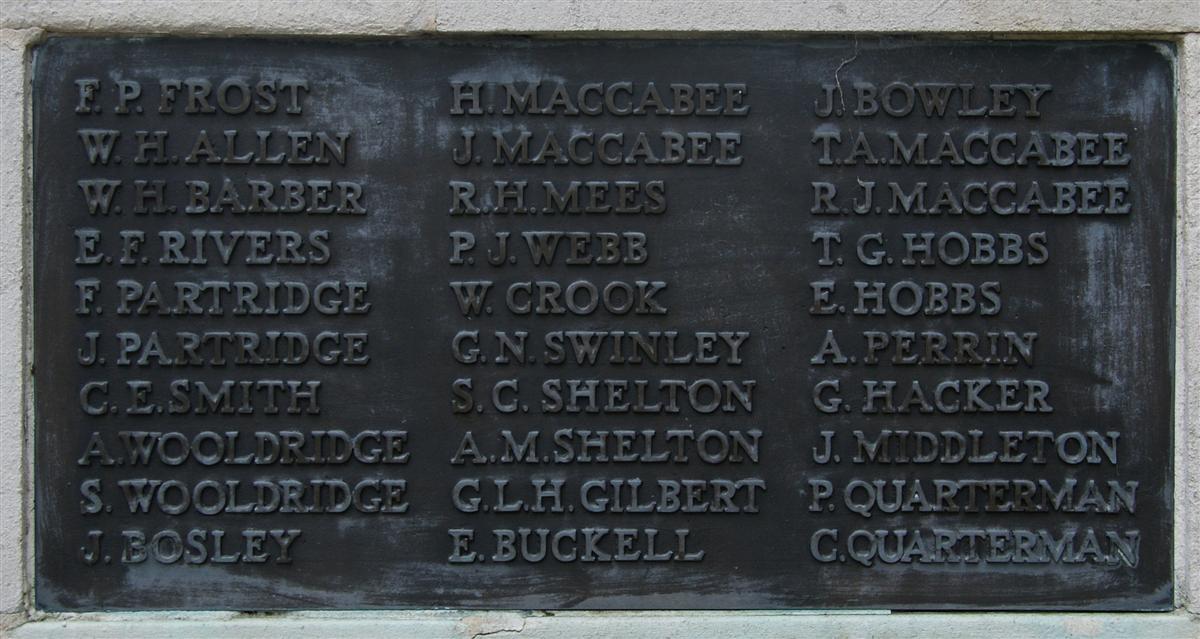Richard Henry Mees
Sergeant M2/104581 Richard Henry Mees, 54th Field Ambulance Workshop Unit, Army Service Corps
Richard, known as Dick, was born in 1883, the son of Richard Mees and his wife Mary Harriet née Loud. While he was their eldest son he was the fifth of their seven children: Mary Frances (born 1878), Rosa (1879), Emily (1881), Mabel (1882), Dick, William John (1885) and Ethel Daisy Victora (1887).
 The Chequers Hotel today. |
According to Dick Mees’ obituary (below), he was a pre-war ‘volunteer’, quite possibly serving with the Newbury Volunteer Company that became a part of the 4th (Territorial) Battalion of the Royal Berkshire Regiment as a result of the Haldane Reforms of the British Army in 1908. These reforms included the creation of the ‘Territorial Reserve’. Membership of the Territorials was on the basis of a four year term of service; it seems that Dick’s service was some distance in the past by the time war broke out in 1914. He was of an age to have signed up in the wave of patriotism created at the time of the Boer War (1899-1902).
When war did arrive in August 1914 Dick volunteered again, to serve in the National Reserve – the arm of the Army that comprised the so-called old and bold – ex-servicemen, often too old for active service. The Newbury company was used early in the war, some to guard the internment / prisoner of war camp at Newbury Racecourse others to guard railway lines in Dorset. Following the closure of the Newbury camp the guard left Newbury to act as guards on PoW ships anchored in the Solent off Ryde.
The Army soon looked at the fitness levels of National Reservists as they hunted for men who would be able to serve a more active role; probably as a result of this effort Dick transferred to the Army Service Corps (ASC). His previous service stood him in good stead and he was appointed to the rank of Sergeant. Following a period of training he went to France in July 1915. In France he was attached to the 54th Field Ambulance – which might sound like a vehicle but was, in fact, a unit of around 150 men: stretcher bearers, medical staff, ambulance drivers and others. The 54th Field Ambulance was attached to the 54th Brigade in the 18th Division.
 WW1 Motor Ambulance - the type of vehicle that Dick Mees was responsible for keeping in good running order. |
In October 1915 he was given special leave to return to Newbury for a few days to complete the sale of the hotel and attend a farewell dinner at the Chequers for the Mees family. The high esteem in which his father was held is evident from the lengthy newspaper report of the dinner. Dick addressed the gathering:
Newbury Weekly News, 25 November 1915 – The Old Chequers
Sergt Dick Mees, of the MT ASC, thanked them for the kind expressions of regret at their departure. He had obtained leave specially to attend that gathering, and he should take to France the happiest memories of their kindness to him and the family. He hoped the Chequers would stand as it was for many years, and might the Germans never blow it down (applause). Although he should be homeless in a week or so, yet he regarded Newbury as his home, and should always come back to it as such (applause).
He also attended the magistrates’ court to transfer the license of the Chequers from himself and his brother Jack to the manager appointed by the new owners. As this was not an official licensing session the transfer was only temporary until confirmed at such a session (the next being on 26 November); both brothers were excused from attending the licensing session in recognition of their commitments to the army.

The regimental badge of the Army Service Corps, as used on CWGC headstones. |
The news soon reached Newbury:
Newbury Weekly News, 2 December 1915 – Local War Notes
Believers in omens or fate, will draw conclusions from the circumstances that Sergt R Mees, the eldest son of the late proprietor, was killed in France on the day that the license of the Chequers changes hands. The sad news reached Newbury on Monday evening when Mr John Mees received a letter from Lieutenant Janson, that Sergt Dick Mees had been killed by a bomb the previous Friday morning. He was standing with four others, when a bomb from an aeroplane exploded among them, and the whole were killed instantaneously. Unfortunately there is no doubt that sad event actually occurred, as a letter was received the same day by Mr Henry Jolliffe, from Sergt Haines, of the 179th ASC MT Company, which was billeted in Newbury, and left for the front in June last. Sergt Haines wrote that he was within a few yards of the explosion, and that Dick Mees was killed instantaneously. The burial was arranged for Saturday, and the members of the 179th Company would see that the grave was well kept.
Sergt Dick Mees was an old Volunteer, and joined the Berkshire National Reserve during the time they were at Newbury Racecourse. He shortly afterwards joined the ASC MT, and had been in France for several months employed under the Royal Army Medical Corps. He was at home only a fortnight ago, when he and his brother were the recipients of a complimentary dinner on the Chequers changing hands.
 Dick's name on Newbury War Memorial. (upper centre) |
Locally he is remembered on tablet 2 of the Newbury Town War Memorial and on the parish memorial for Speenhamland (the Speenhamland Shrine). When St Mary’s, Speenhamland was demolished in the 1970s this memorial was moved to its current location in St Nicolas Church, Newbury.
William John (Jack) Mees – it is known from several newspaper reports covering the family’s departure from the Chequers that Jack was serving in uniform in 1915, however, there is no apparent record of his service. Most service records were destroyed during WW2, leaving medal award records as the most comprehensive record of WW1 service for army ‘other ranks’; the lack of such a record does not mean that a man did not serve, just that he did not serve in a theatre of war. Thus it looks likely that Jack’s service was limited to duties within the UK.

Find a memorial :
| Died this day: | |
| 02 March 1918 | |
| Gordon Burgess | |
| Newbury |

Like this site? Show your appreciation through a donation to a great charity.